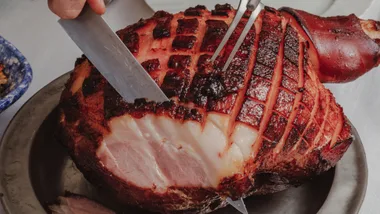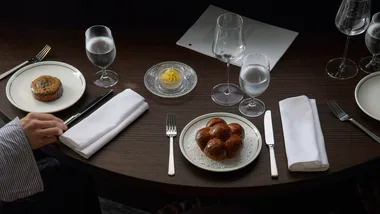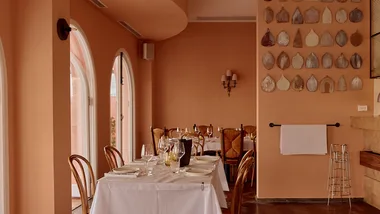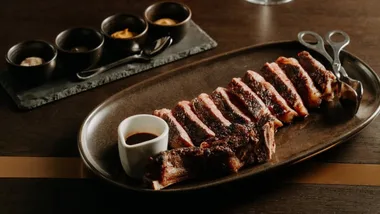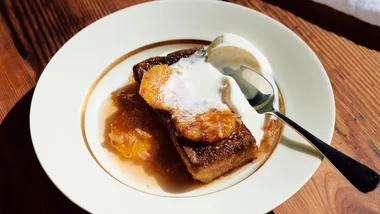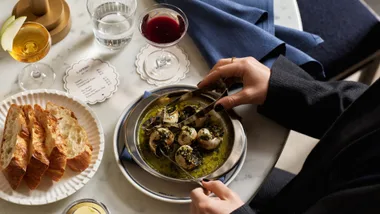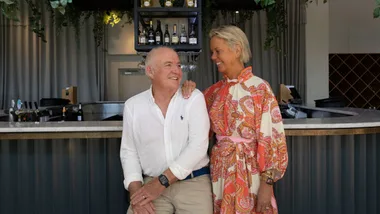Despite the upheaval and uncertainty 2020 brought, I feel very blessed in many ways. I haven’t just met new people, I’ve formed a deep connection with many of them. Upon meeting Kamilaroi man and Deadly Science founder, Corey Tutt, I was immediately uplifted by his strong, clear sense of purpose. His mission and genuine desire is to enhance the lives of young Aboriginal children.
When I think of the future through the lens of this young leader’s essential, all-inclusive, powerful and compassionate work, I feel great hope and excitement. – Kylie Kwong
Community x Kylie: Corey Tutt
Education is freedom and science is hope. That’s the core philosophy behind Deadly Science, an outreach initiative that provides science books and resources to remote schools and communities across Australia.
And the person behind the initiative is Corey Tutt – a 28-year-old Kamilaroi man, who was named 2020 NSW Young Australian of the Year.
“It’s been a one-man band in terms of sending out the books but it’s one of the biggest teams in Australia because I’ve got the community on my side. I’ve got the teachers, I’ve got the schools, I’ve got the general public.”
Growing up, Tutt used to make friends by picking up lizards and snakes and telling other kids about them. His childhood dream was to become a zookeeper.
“The first book I read was Australian Reptiles in Colour by Harold G Cogger. It was given to me by my Pop. It was a gift for my birthday when I was 8 years old. I loved it. It captured my imagination.
“I wanted to be the Harry Butler of the Aboriginal world. But I was told by my teacher that kids like me don’t go on to those things. The best I could hope for was a trade,” he recalls. “I wasn’t seen as special. I was seen as someone who wasn’t going to contribute to society.”
Undeterred, Tutt pursued his dream, heading to Western Australia as a 16-year-old to work in a wildlife sanctuary. Over the course of the next 10 years, he took on various jobs, eventually landing in Sydney, where he worked as an animal technician and later became a research assistant at the University of Sydney.
“I didn’t meet any other Aboriginal people who were doing what I was doing, working in STEM [science, technology, engineering and mathematics],” he says. “I started going to Redfern and talking to the mob there… I was talking to these kids in Redfern – they were highly intelligent and gifted. But they were being pushed towards art and sport.”
Tutt started meeting with the group every Friday afternoon to share his stories and introduce the kids to the world of science – and explain how they fit into it.
“Aboriginal people are the world’s first scientists. We were the first chemists, the first physicists and the first astronomers. We have 65,000 years of knowledge,” he explains. “I was someone working in science and I was able to share a form of science that was accessible. You can’t be what you can’t see but I was allowing them to see it.”
Encouraged by the positive response, Tutt decided to think bigger. He began researching remote schools and cold calling them to find out how he could help.
“I found out that our schools are really under-resourced. They had plenty of footballs but not much science. I just wanted to change it.”
So he did. Tutt began by boxing up his own personal collection of books and sending it to a school that had just 15 of their own. Then he bought more books and sent those. As more schools heard about Tutt’s programme, he bought more books, working weekends and holidays to pay for them.
Today, Deadly Science has sent more than 14,000 books and 500 telescopes and chemistry sets to schools. “We’ve got kids in Australia growing up who want to be Deadly Scientists instead of AFL footballers,” says Tutt. “These are kids that now have an identity and a purpose.”
Introduction by Kylie Kwong, words by Joanna Hunkin.


